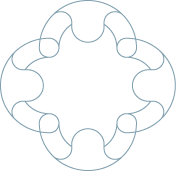Defining Masking as part of Neurodivergent Experiences.
What Is Masking from a Neurodivergent Perspective?
Masking is the conscious or unconscious act of changing fundamental characteristics of your personality to fit in better with your surroundings or the people around you. It may mean refraining from kinetic movement (often called stims) to regulate behavior, and emotion, it may mean pretending that you don’t know EVERYTHING about a special interest, it may mean maintaining eye contact (but not too much!) or allowing people to touch you in ways that make you uncomfortable, perhaps hand shaking is not something you’re interested in. Masking is commonly associated with Neurodivergent people, especially Autistic, AuDHD, and ADHD people.
Almost everyone uses something called code switching to a certain degree. You don’t talk to your boss the way you talk to your best friend (or maybe you do, but most people don’t ), you don’t talk to your children the way you talk to your parents. Conversations with your best friend look different than conversations with your co-worker. This is code switching, you make small changes based on the circumstances you are in.
So what’s the difference between code switching and masking? Code switching asks us to change certain small factors in our communication and behaviour to “fit in” to the current circumstance. When you go home, you drop the code and settle into your “normal” self. For high masking individuals, two issues arise. One, many high masking folks, don’t even know that they are masking. A lifetime of “correction” about their behaviour leads them to making changes that are uncomfortable and upsetting, but they can’t always identify what they are doing or why, only that they’re exhausted from the effort. Secondly, for some high masking folks, they know it’s not safe to drop the mask. Masking keeps them safe from job loss, being ostracized, being criticized, in many cases it keeps them safe from a lifetime of shame.
Curious to learn more about how masking impacts you, your life, and your neurodivergent expressions? Check out the upcoming Unmasking Autism Book Club which is a focus on peer support and community gathering to explore unmasking in your own life. Learn more here.
#neurodivergence, #unmaskingautism, #actuallyautistic
Amanda Broderick, BSW Student Intern
Meet Amanda, guest author for the above blog post. Amanda Broderick, an autistic, disabled, white bodied female who is currently pursuing her Bachelor of Social Worker degree from Dalhousie University. She is completing a practicum placement with a clinical social work focus in Shelley Restall’s Counselling practice. Amanda is passionate about supporting late diagnosed autistic females (including self-diagnosed, exploring neurodivergence), to build a life that is based on self-knowledge, self-acceptance, creating systems of neurodivergent affirming support for daily life, and de-constructing internalized ableism that is self-limiting.



